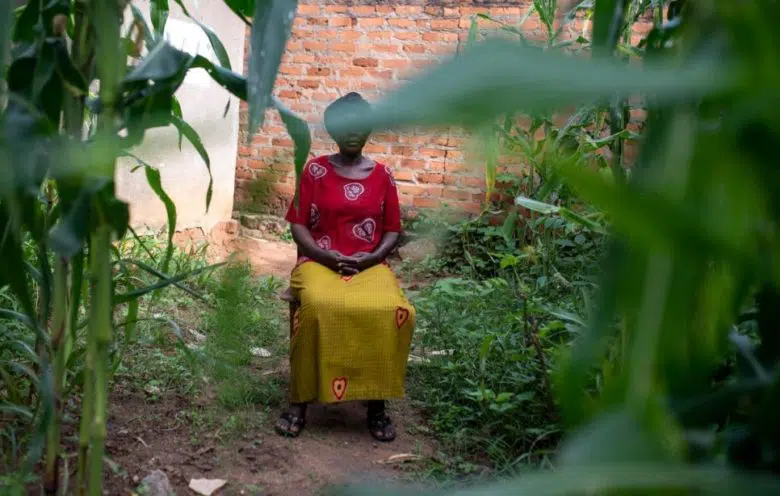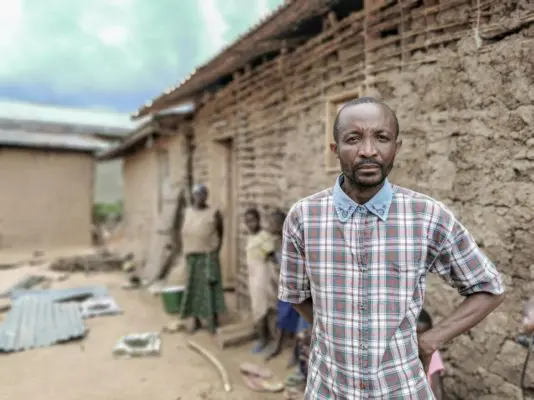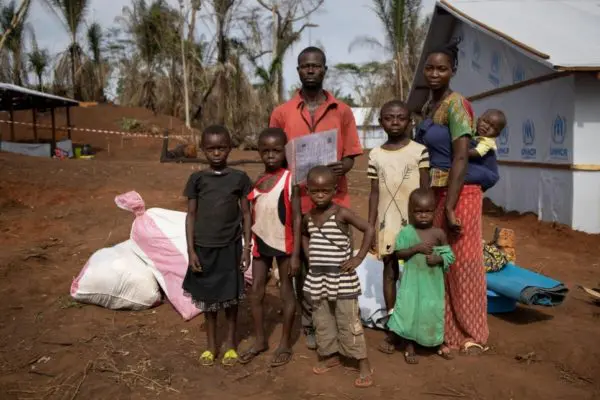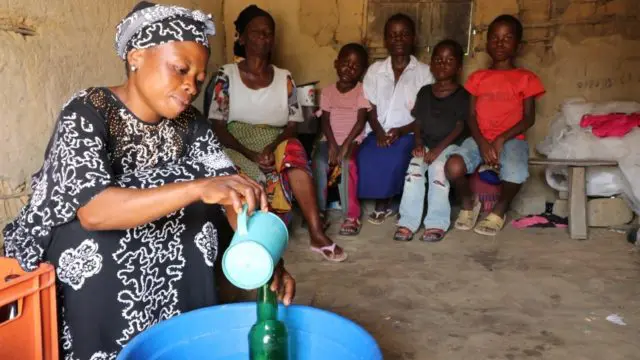
Forcibly displaced women and girls suffer disproportionately from sexual and gender-based violence in the Democratic Republic of the Congo. © UNHCR/Olivia Acland
This is a summary of what was said by UNHCR spokesperson Shabia Mantoo – to whom quoted text may be attributed – at today’s press briefing at the Palais des Nations in Geneva.
UNHCR, the UN Refugee Agency, is gravely concerned about incidents of widespread and systematic sexual violence against Congolese women and girls, perpetrated by armed groups in the Democratic Republic of the Congo’s Tanganyika Province, where thousands have been internally displaced this year.
More than 23,000 people have been displaced since May in northern Tanganyika’s Kongolo Territory alone, according to local authorities. Most have fled insecurity multiple times in the past three months.
In just the past two weeks, humanitarian partners in the Kongolo and Mbulula health zones, have recorded 243 incidents of rape, 48 of which involved minors, in 12 different villages. This is an average of 17 reported attacks each day. The actual figures are thought to be even higher as reporting of gender-based violence (GBV) remains taboo in most communities. In addition to the huge physical and psychological trauma from being raped, survivors of sexual violence can face stigma and possible exclusion from their families.
The attacks are reportedly being carried out by rival armed groups competing to maintain control over mining areas – especially gold mines – and as retaliation against government-led military operations. Civilians find themselves trapped in the middle of intense confrontations between different groups.
Our staff have heard horrific testimonies of extreme violence. Forcibly displaced persons have accused armed groups of carrying out mass rape as women attempt to flee their homes. Some women and girls have been abducted and used as sex slaves by armed group members. Ransoms have been demanded from families in exchange for their freedom.
UNHCR and its partners continue to work with local authorities and humanitarian actors to ensure that psychosocial and medical support is provided to survivors, but the ongoing conflict and long distances to reach health centres are making it extremely difficult for them to access assistance.
UNHCR is calling on the authorities to urgently scale up security in the so-called “triangle of death” – an area bordering several localities between Tanganyika, Maniema, and South Kivu Provinces – to protect civilians, especially women and girls; allow humanitarian access; and for investigations to be launched and the perpetrators to be brought to justice.
As of July 2021, nearly 310,000 people have been uprooted by insecurity and violence and are currently displaced in Tanganyika Province, according to UN estimates.
Humanitarian and protection needs are growing and UNHCR is seeking further financial support. We have received just 36 per cent of the US$205 million required for our DRC operation.
For more information on this topic, please contact:
- In Kinshasa, Fabien Faivre, faivre@unhcr.org, +243 825 443 419
- In Pretoria (regional), Helene Caux, caux@unhcr.org, +27 82 376 5190
- In Geneva, Boris Cheshirkov, cheshirk@unhcr.org, +41 79 433 7682
- In New York, Kathryn Mahoney, mahoney@unhcr.org, +1 347 443 7646
Originally published by UNHCR on 13 August 2021.





